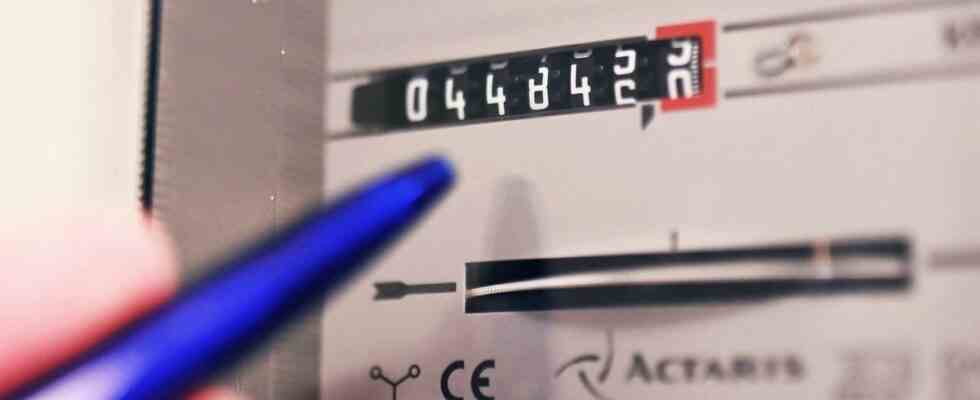Green electricity taxes will no longer apply from July
:
What electricity customers now need to know about the elimination of the EEG surcharge
Read the electricity meter and report it to the provider: This is particularly useful for a group. Photo: Uli Deck
Dusseldorf It was introduced in 2000 and will no longer apply to private households as of July 1: The EEG levy, also known as the green electricity levy. Who should therefore quickly take an intermediate reading of the electricity meter reading and when customers will get money back from the supplier.
There is good news and bad news for electricity customers. The good news first: Electricity will be 4.43 cents cheaper per kilowatt hour gross from July 1st. Because the EEG levy, which has existed since 2000 and is used to finance renewable energies, will then drop to zero cents. Utilities must pass the reduction on to their customers and are also not allowed to raise the energy price on July 1st.
This is stipulated by the “Law on reducing the cost burden of the EEG surcharge and passing on this levy to the end consumer”. It was passed by the Bundestag at the end of April and has been in force since the end of May. The electricity bill does not drop immediately as a result, but “is only offset with the next annual bill,” says the NRW consumer advice center. However, the electricity providers would have to transparently show the “amount by which the electricity bill will be reduced due to the elimination of the EEG surcharge” in the electricity bill.
EEG surcharge: That’s why you should read your electricity meter now
The consumer advice center recommends households that heat with electricity – for example with a heat pump or a night storage heater – to take an interim reading of the electricity meter reading. Then: “Their power consumption is unevenly distributed over the year due to the heating period, and can also vary from year to year due to the weather.“ An estimate by the electricity provider is not enough to find out how much electricity was used in the first half of the year and how much in the second. These kilowatt consumption levels are ultimately crucial in order to calculate the falling costs in view of the EEG surcharge being eliminated. Households affected should take their meter reading on June 30th and report the value to their electricity provider.
Households that don’t heat with electricity don’t have to do that, because the electricity consumption here is distributed very evenly over the year, says the consumer advice center. If you still want to do it, you can of course do so.
In the future, “dhe financing requirements for renewable energies […] compensated from the federal special fund “Energy and Climate Fund”.“. The federal government announced this in April. That was a concern of the coalition agreement of the traffic light government. This should “the share of renewable energies in gross electricity consumption […] almost doubled in less than a decade be,” said the cabinet. Originally, the EEG surcharge for electricity consumers was only to be dropped from January 2023. In view of the currently tense situation with war in Ukraine, inflation and enormously increased energy costs, this was implemented early on to relieve households.
And that is also the bad news: the electricity providers are not allowed to raise the work prices – i.e. part of the electricity costs – for the current year and are legally obliged to pass on the elimination of the EEG surcharge. However, it is quite conceivable that the overall electricity prices will still rise due to the current situation. Many electricity providers in the Rhineland have already announced higher costs.

